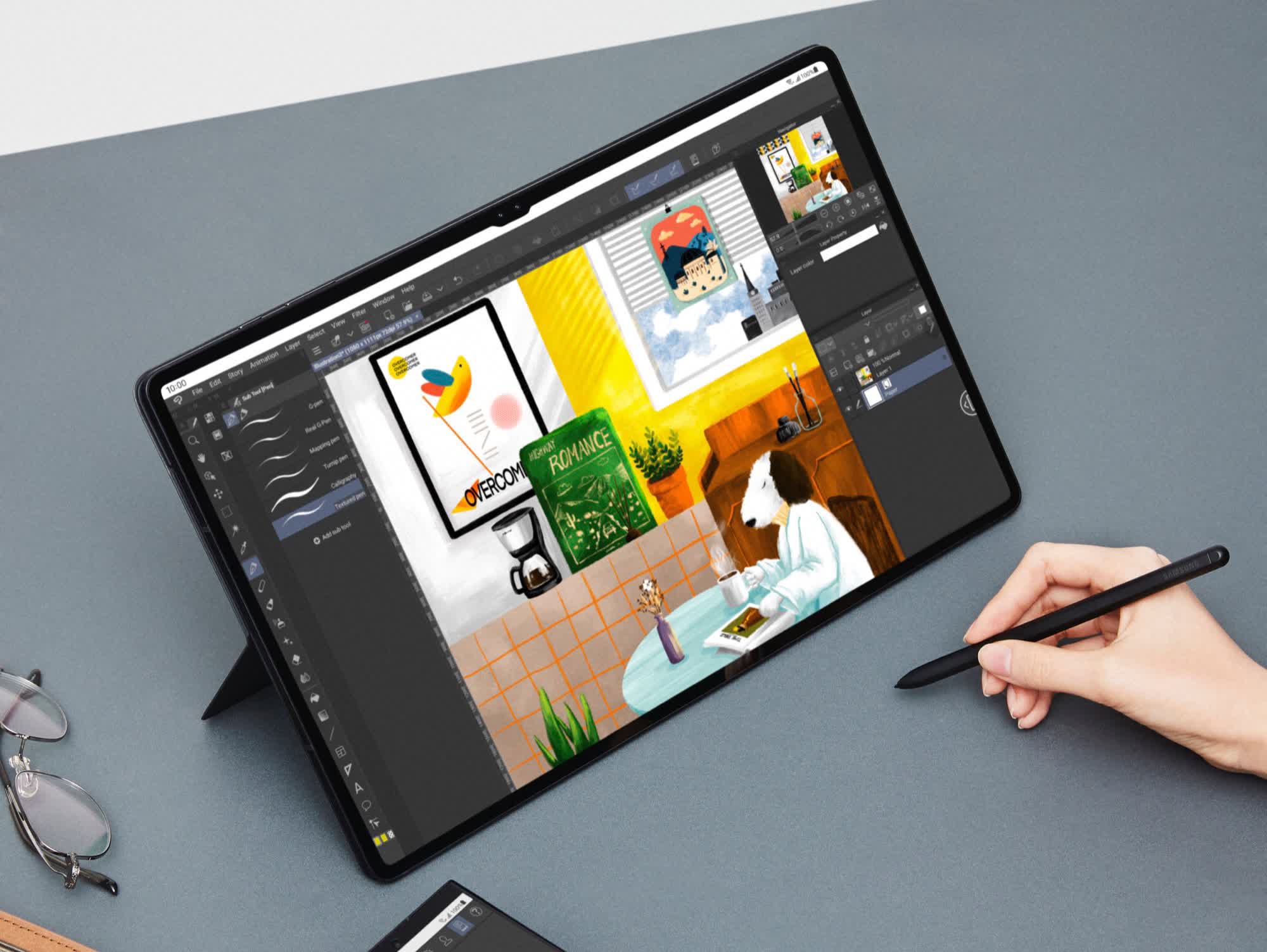In context: Samsung landed in hot water recently after its latest flagship, the Galaxy S22, was discovered to be selectively throttling apps using Samsung’s Game Optimizing Service, while excluding other apps and benchmarking tools like those from Geekbench. The latter determined it as benchmark manipulation and proceeded to ban all Galaxy S series models using GOS, all the way back to 2019’s Galaxy S10.

During their in-depth testing of the Galaxy Tab S8 series, Android Police found both the S8 Ultra and S8+ variant to be throttling performance when they ran a modified version of Geekbench, renaming it to the popular game Genshin Impact.
The publication observed the tablets' performance declining by 18-24 percent for single-threaded CPU scores and 6-11 percent for multi-threaded scores. Moreover, older Galaxy Tab models, such as the S7, S7 FE and S5e didn't demonstrate this behavior during testing.
The culprit is believed to be Samsung's Game Optimizing Service and an associated list of 10,000 apps, which resulted in Geekbench delisting four generations of Galaxy S phones, plus legal troubles for Samsung.
Interestingly, Android Police notes that GOS doesn't affect all apps and is a sophisticated service that takes into account device temperature, power consumption and other system factors. Nevertheless, Geekbench promptly moved to delist the Tab S8 series for benchmark manipulation.
Thanks to @AndroidPolice, we became aware that the Samsung Galaxy Tab S8 makes performance decisions based on application identifiers rather than application behavior. We've delisted the Samsung Galaxy Tab 8 from our Android Benchmark chart. https://t.co/DlbWr2E6l3
— Geekbench (@geekbench) March 14, 2022
The app throttling controversy also resulted in an apology from JH Han, Samsung's CEO of Device Experience, during a recent shareholders meeting. Although Han defended the use of GOS by noting that the service only limited CPU and GPU performance to an extent while not disturbing the gaming experience, the CEO promised that such an incident wouldn't happen again.
Samsung has also recently started pushing out a GOS update in South Korea for the Galaxy S22 to address this concern. While a global rollout for other S22 devices can be expected soon, it remains to be seen if this update also becomes available to older, Geekbench-delisted Galaxy S phones and the Tab S8 series.
https://www.techspot.com/news/93802-geekbench-extends-ban-galaxy-tab-s8-series-samsung.html